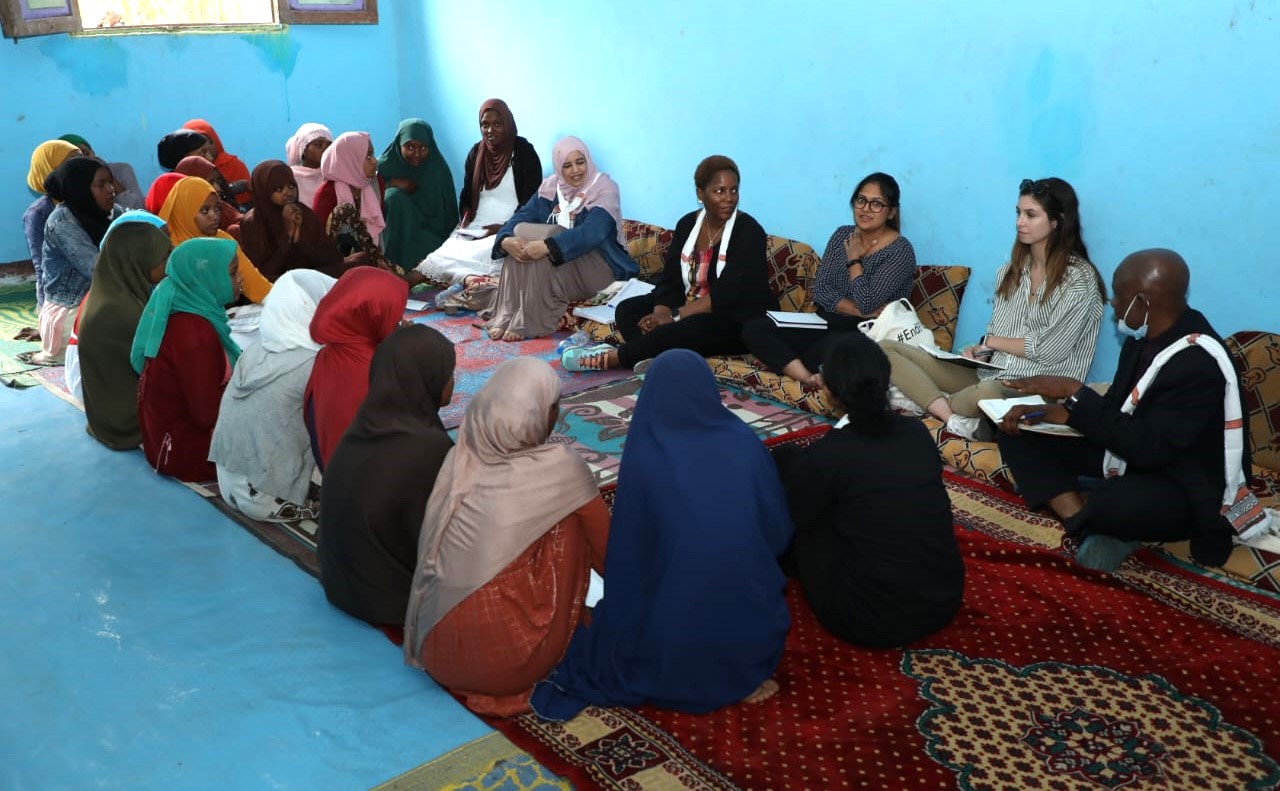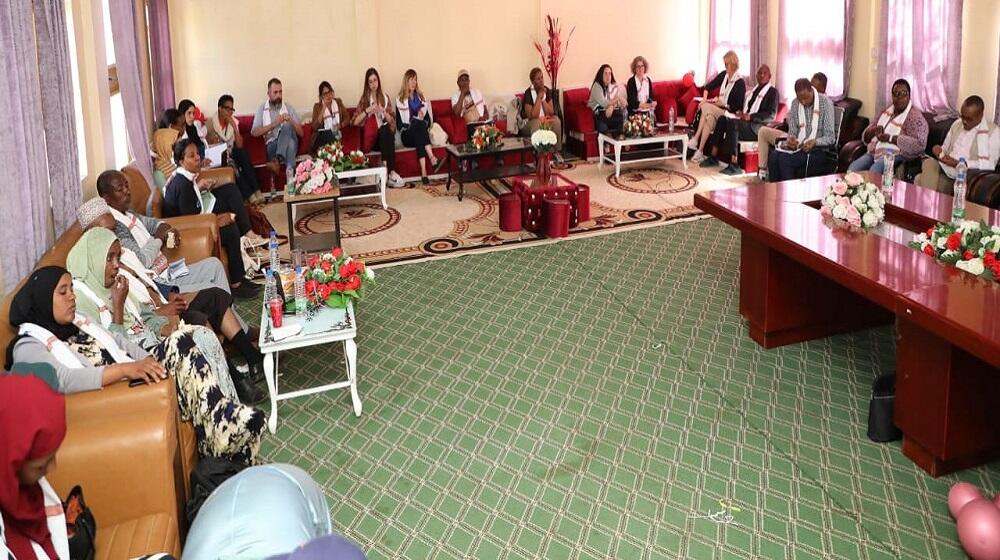A high-level delegation composed of members of the Steering Committee for the UNFPA-UNICEF Joint Programme on the elimination of Female Genital Mutilation (FGM), drawn from Canada, Germany, Nigeria, Sudan, Spain, Sweden, the United Kingdom, and the United States of America, visited Ethiopia between 2 and 6 October. The visit provided an opportunity for the donors to observe first-hand the progress made to deliver on SDG 5.3, eliminating harmful practices such as FGM and child marriage, midpoint to the end date of the Sustainable Development Goals. They also got the chance to understand various challenges undermining the efforts.
During their three-day field visit to the Dalocha woreda of the Silte Zone in the Central Ethiopia Region, the members of the Steering Committee were informed about the collaborative efforts being undertaken by various sectoral offices at both the zonal and woreda levels to combat FGM. The briefings highlighted the remarkable results achieved in the fight against harmful practices through multi-sectoral collaborations established from the grassroots level to the regional level.
“One thing that impressed us was how the effort is being institutionalized in the government structures across different levels down to the community level in a strong way to yield very good results,” said Susanna Janson Landin, Senior Advisor on Health & SRHR, Swedish International Development Agency.
The Steering Committee visited the implementation of the Joint Programme in the Dalocha woreda, one of the four intervention woredas in the region. They observed the sustainability of the fight against harmful practices through the involvement of grassroots community structures.

Katia Torregrosa, Senior Development Officer at Global Affairs Canada, noted “what was striking for us was how the youth, particularly young girls, are becoming not only influencers, but how these interventions are contributing to enabling them realize their bodily autonomy.”
The Steering Committee interacted with members of the anti-harmful practices committees, which included religious leaders and ex-circumcisers, who shared their contributions to the cause.
The Joint Programme is being implemented in 17 countries, including Ethiopia.


